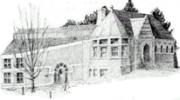Adopted by Pillsbury Free Library Trustees Nov. 2012, revised July 2020.
Purpose
To ensure that all users of the Pillsbury Free Library may safely and freely use the library, in a pleasant and welcoming atmosphere.
Expected conduct
1. Materials may only be removed from the library with proper authorization. The Library reserves the right to inspect personal belongings for concealed Library material. Theft of Library material – or damaging or defacing material – may lead to prosecution under NH RSA 202-A.
2. Cell phones or other electronic devices must be set to silent or vibrate mode. Quiet talking on a cell phone or other electronic device is allowed outside or in the lower level entrance hall. When needed at the computer for instruction, a cell phone may be used with a quiet voice.
3. Food or drink must be kept to approved areas of the library (meeting space, kitchen and hallway only). See also Meeting Room Policy.
4. Proper dress, including tops, bottoms, and shoes, is required at all times.
5. Children under eight years of age must be accompanied and supervised by an adult or caregiver at all times. Children between the ages of 8 and 11 should be accompanied by an adult or caregiver if the library stay exceeds one-half hour. Please see Child Safety Policy for more details.
6. Adults unaccompanied by a child, who do not require immediate materials from the Children’s Area, shall be asked to relocate to other areas of the library.
7. Persons needing continuous or frequent supervision or assistance must be accompanied by the appropriate supervisor or caregiver when visiting the library.
8. Persons in the Library are responsible for their personal property. Personal property should not be left unattended. The library is not responsible for lost or stolen items.
9. During an infectious disease outbreak, epidemic, or pandemic, persons must follow health and safety guidelines or requirements as determined by the Board of Trustees, based on Local, State and Federal recommendations (2020 rev)
Prohibited Conduct
Any conduct that negatively affects the library or its users is prohibited. Behavior that is prohibited in the library includes – but is not limited to – the following:
1. Harassment or disturbing of library visitors or staff, including excessive noise such as playing audio equipment so that others can hear it, pervasive odors, or other behaviors that negatively affect ability of other library visitors to use the library or of staff to perform their work.
2. Inappropriate touching or physical display of affection; Aggressive physical or verbal actions.
3. Mis-use of computers or other equipment including viewing pornographic material. (see also Library Equipment and Internet Safety Policies)
4. Bare feet, unsanitary or insufficient clothing or other conditions of public health concern.
5. Smoking or use of tobacco products including chewing tobacco on library property; Food or drink in non-approved areas.
6. Refusing to follow the rules or directions of the library staff, or disrupting their ability to provide services or conduct business.
7. Animals other than service animals, or those approved for a program.
8. Soliciting, canvassing, interviewing (except by private individual arrangement), campaigning, petitioning.
9. Vandalism or causing excessive wear or damage to plants, equipment, furniture, or building; Use of roller blades, roller skates, skateboards, scooters, or other such devices inside the library, or on walkways, steps, benches, or walls;
10. Any illegal act, drunkenness, indecency, or act that creates a condition that is hazardous to him/herself or another. Possession of alcohol or any controlled substance.
11. Theft or removal of items without permission.
12. Bringing a weapon into the library unless authorized by law. RSA 159:26, declares that only the state (not cities or towns) may regulate firearms, and that any city or town ordinances about guns are null and void, except for zoning and hunting (2012).
13. Refusing or avoiding specific health check procedures that have been established for all persons on entry, such as administration of a temperature check or other recommended method of screening for serious infectious disease during a public health emergency. (2020)
14. Creating a risk to public health by failing to follow posted health protection measures which have been mandated to prevent spread of infectious disease hazardous to the library employees and other patrons. Such measures may include the wearing of a face mask, personal distancing, hand sanitizing, or other recommendations for disease control. (2020 rev)
Enforcement
1. Patrons exhibiting improper conduct will be asked by staff to cease, move to another location, or leave the library. Severe or recurring problems will result in barring use of the library or certain services to the individual involved, or by making library use conditional. A notice of warning or actions taken shall be provided to the person involved. If the incident involves a minor (i.e. under 18), a notice of warning or actions taken shall also be provided to parents or guardians.
2. If a person refuses to leave after being asked to do so, for violating the code of conduct, they are considered to be trespassing and appropriate action will be taken. (2020)
3. Persons penalized for violating the Library’s rules or Code of Conduct may make a written appeal to the Board of Trustees, who have final jurisdiction over permission for Library use.
Related /Parent Policy: II. WHO MAY USE THE LIBRARY
